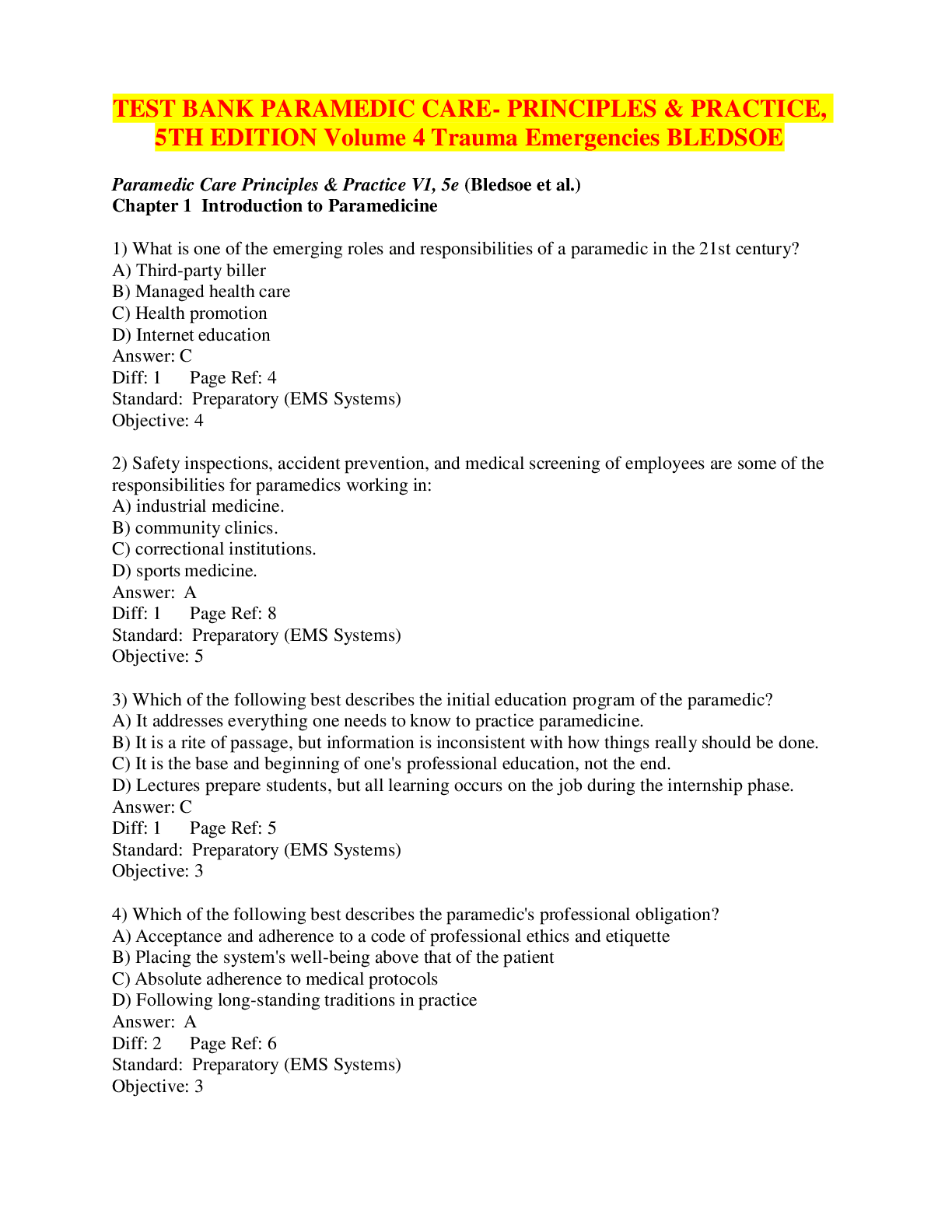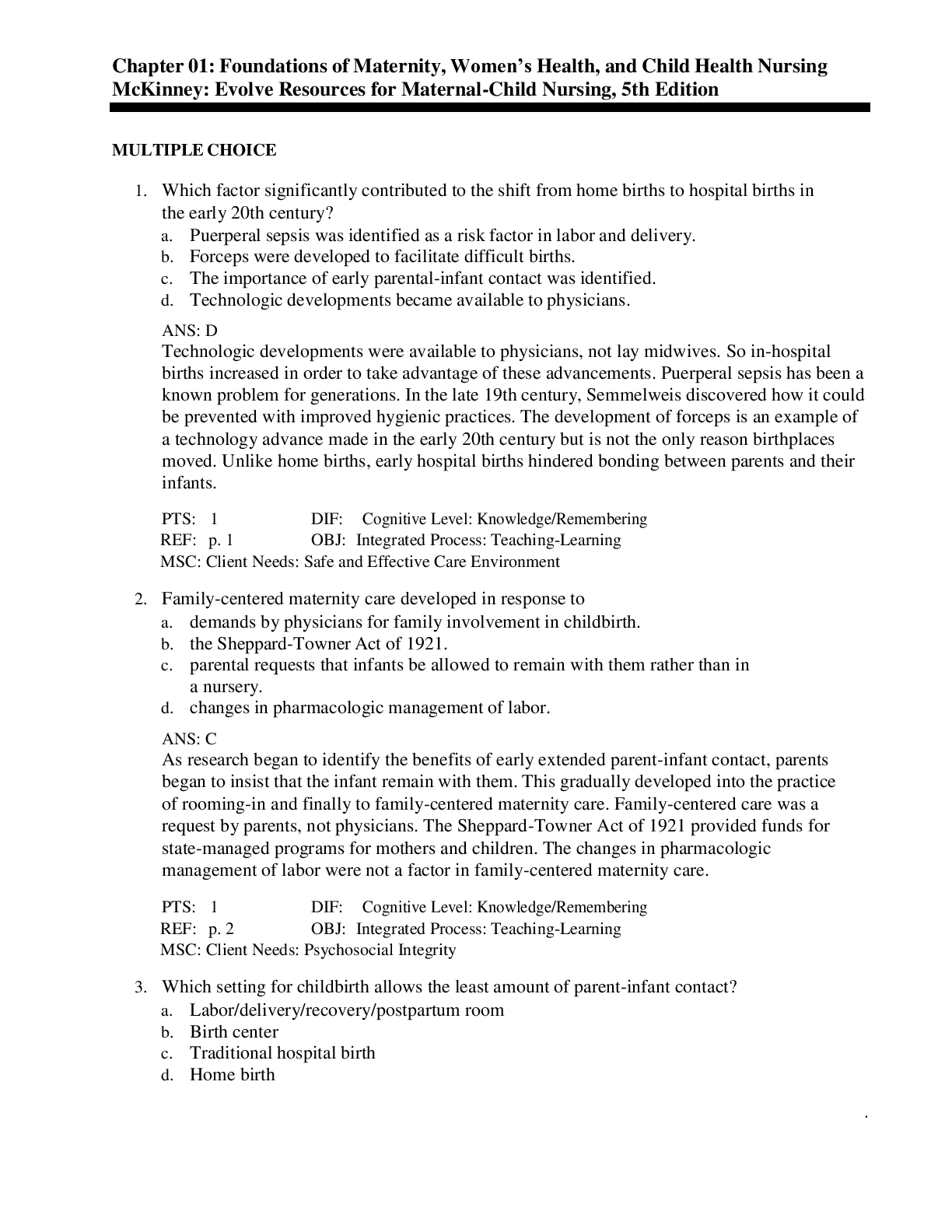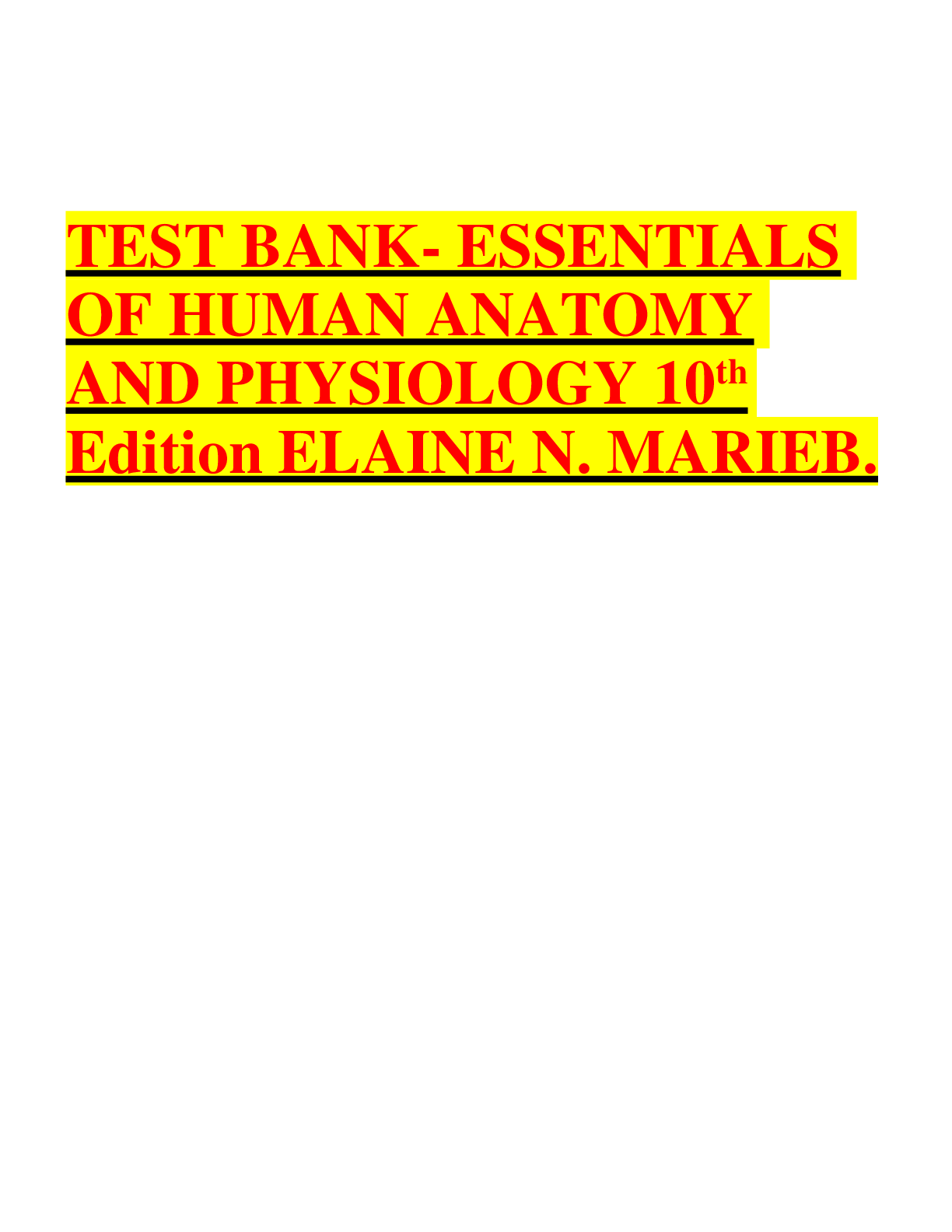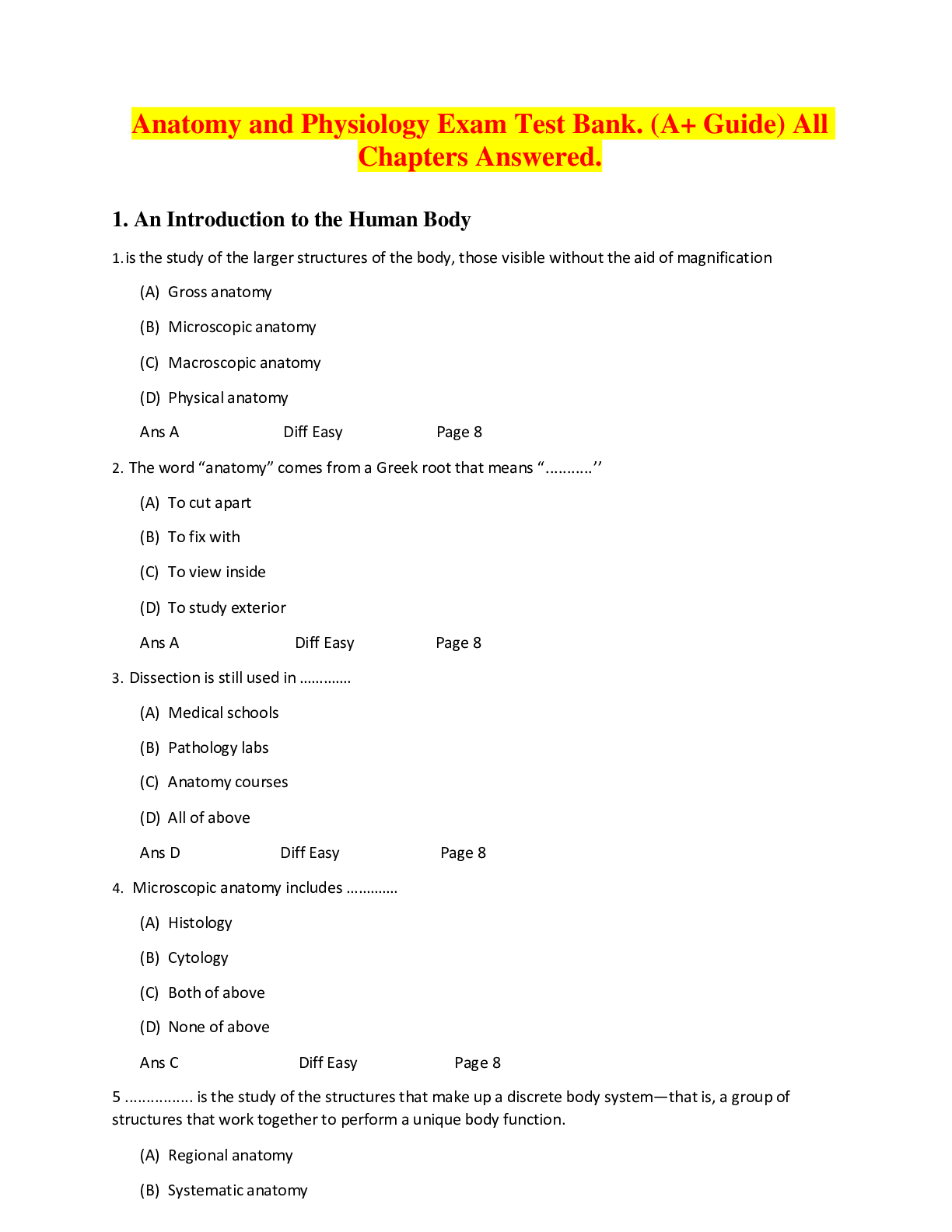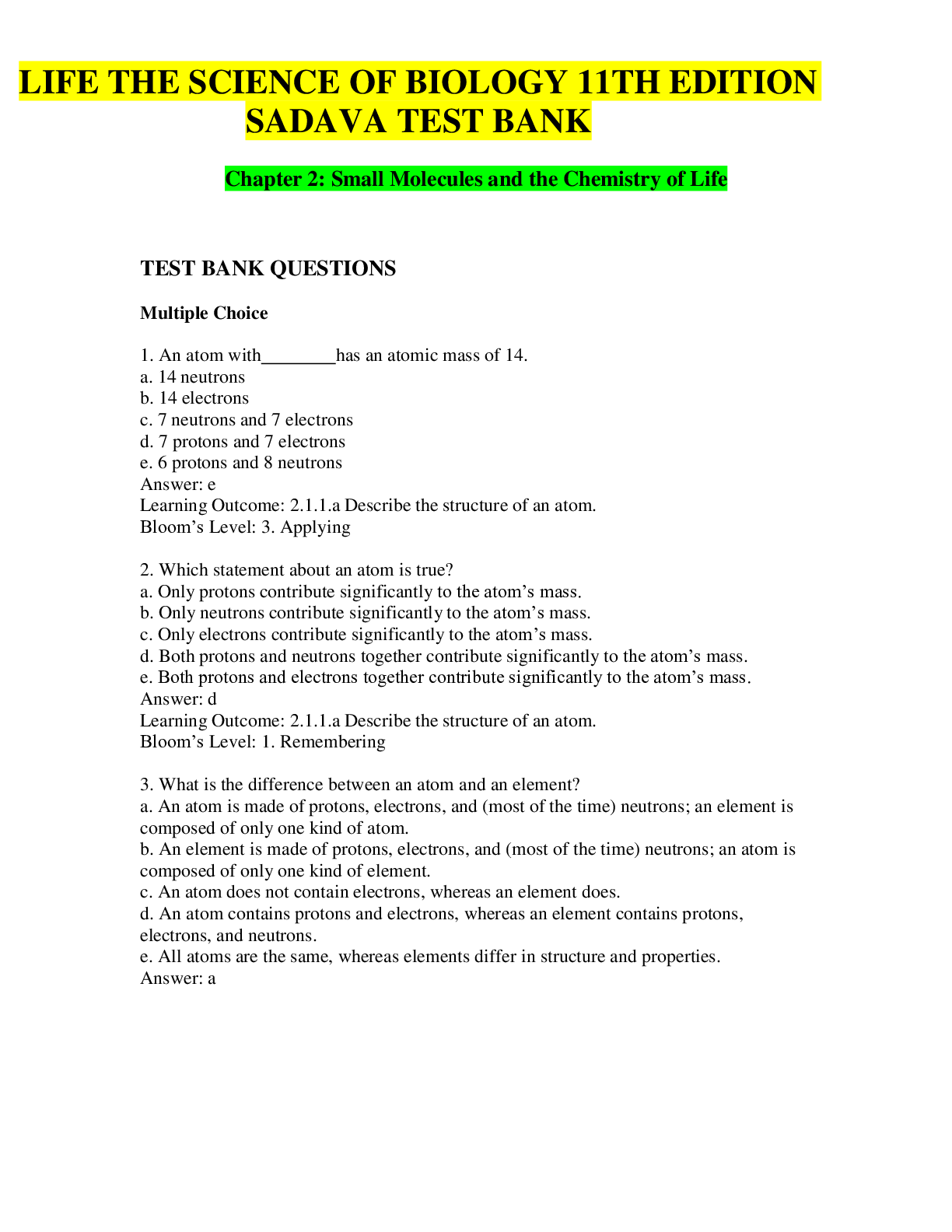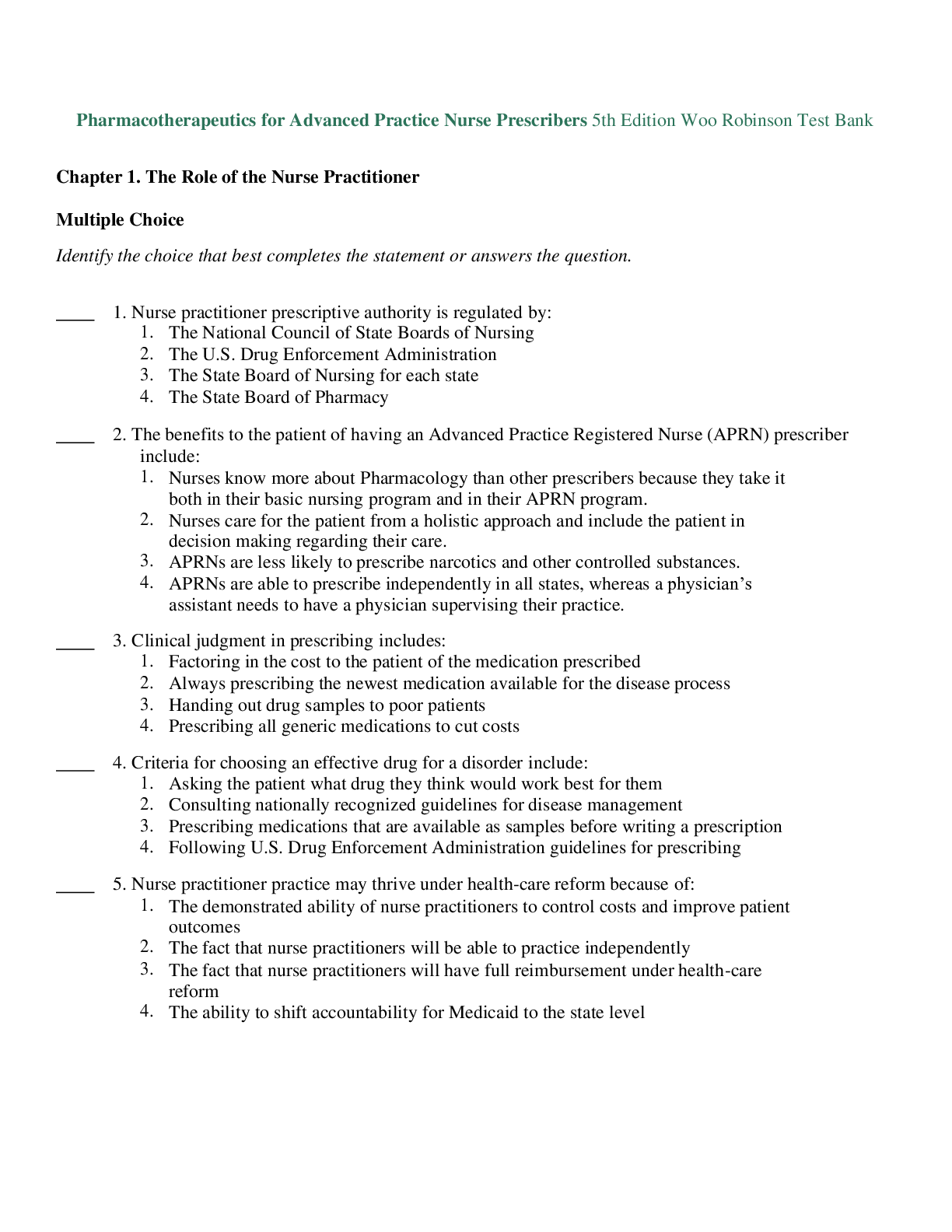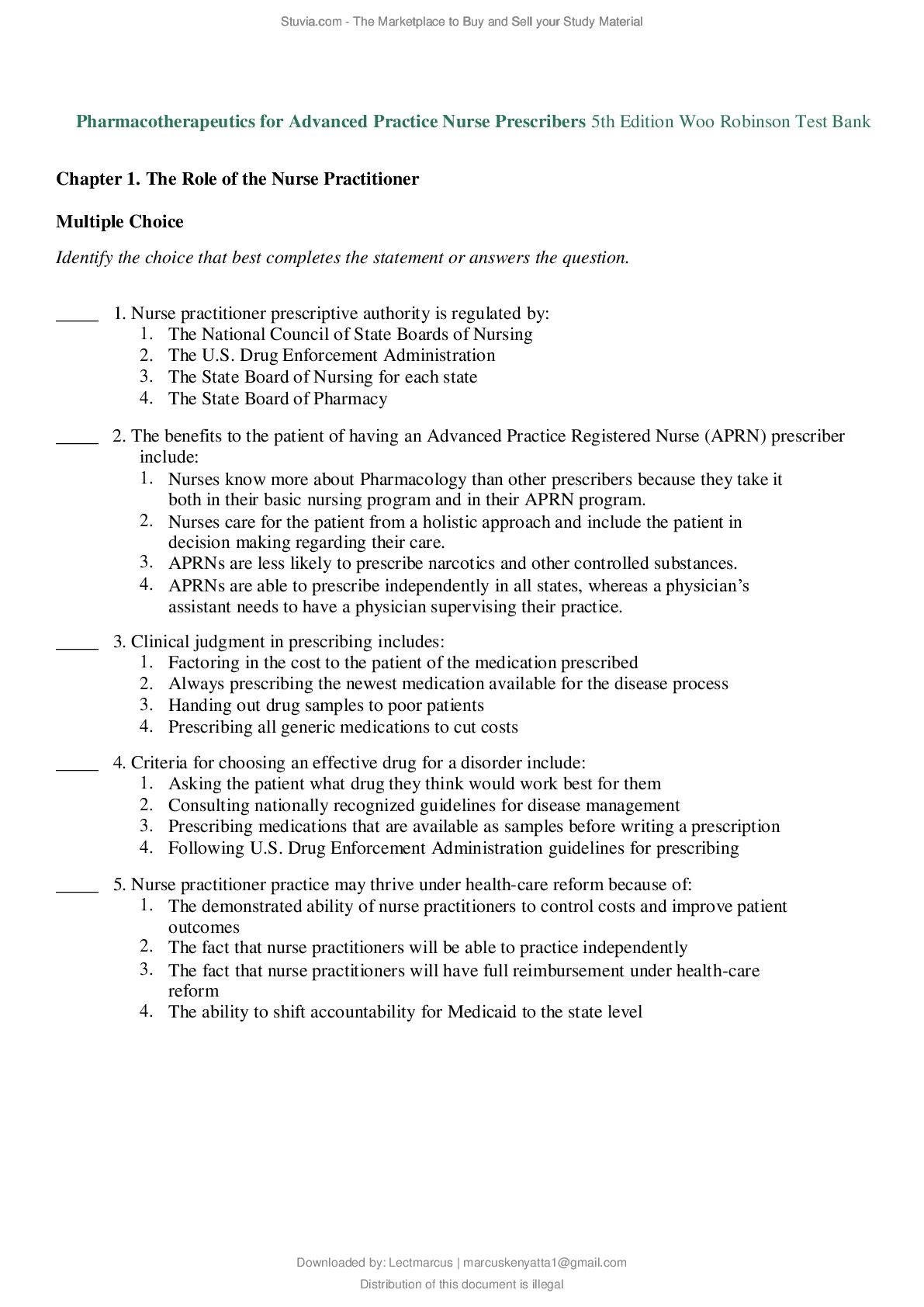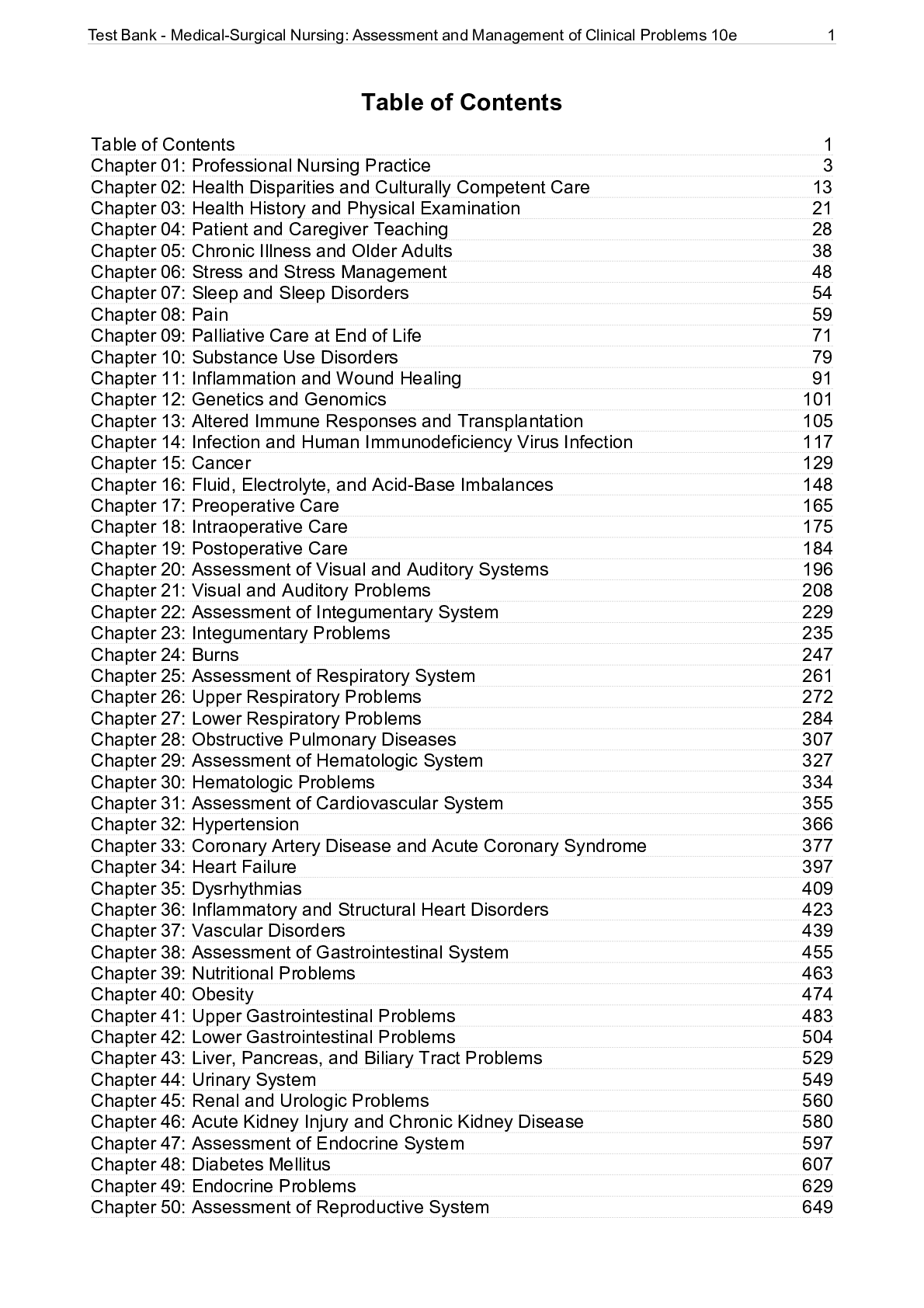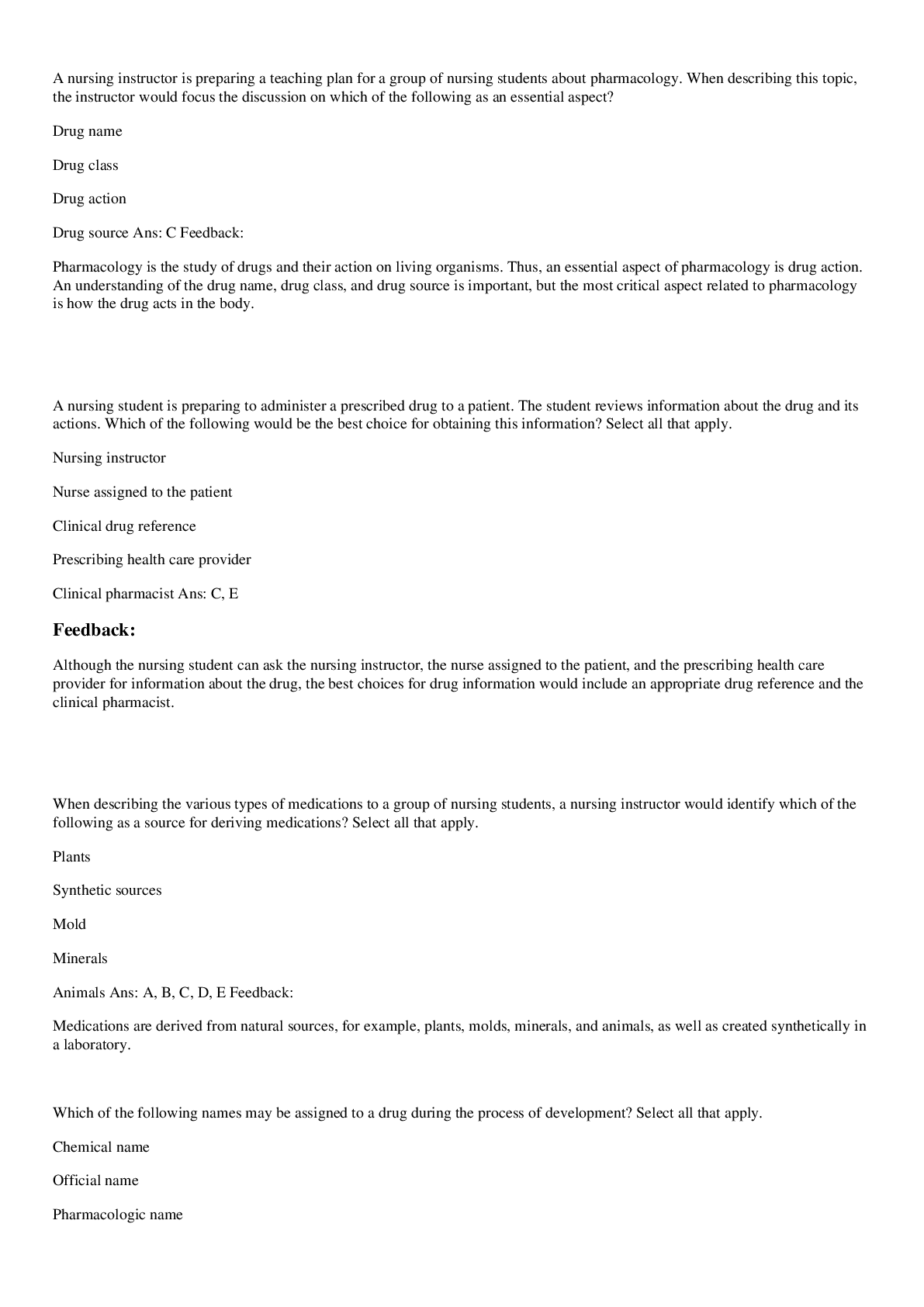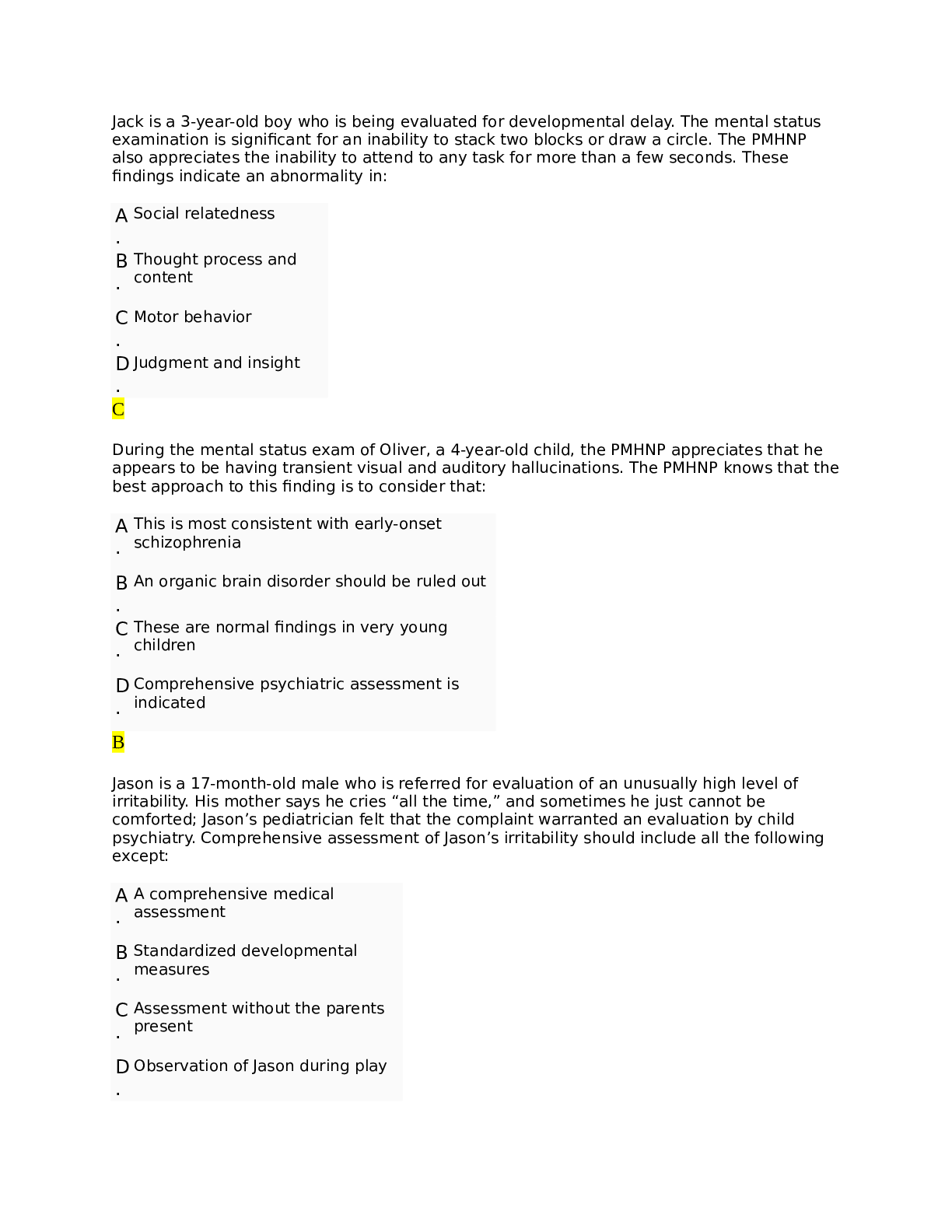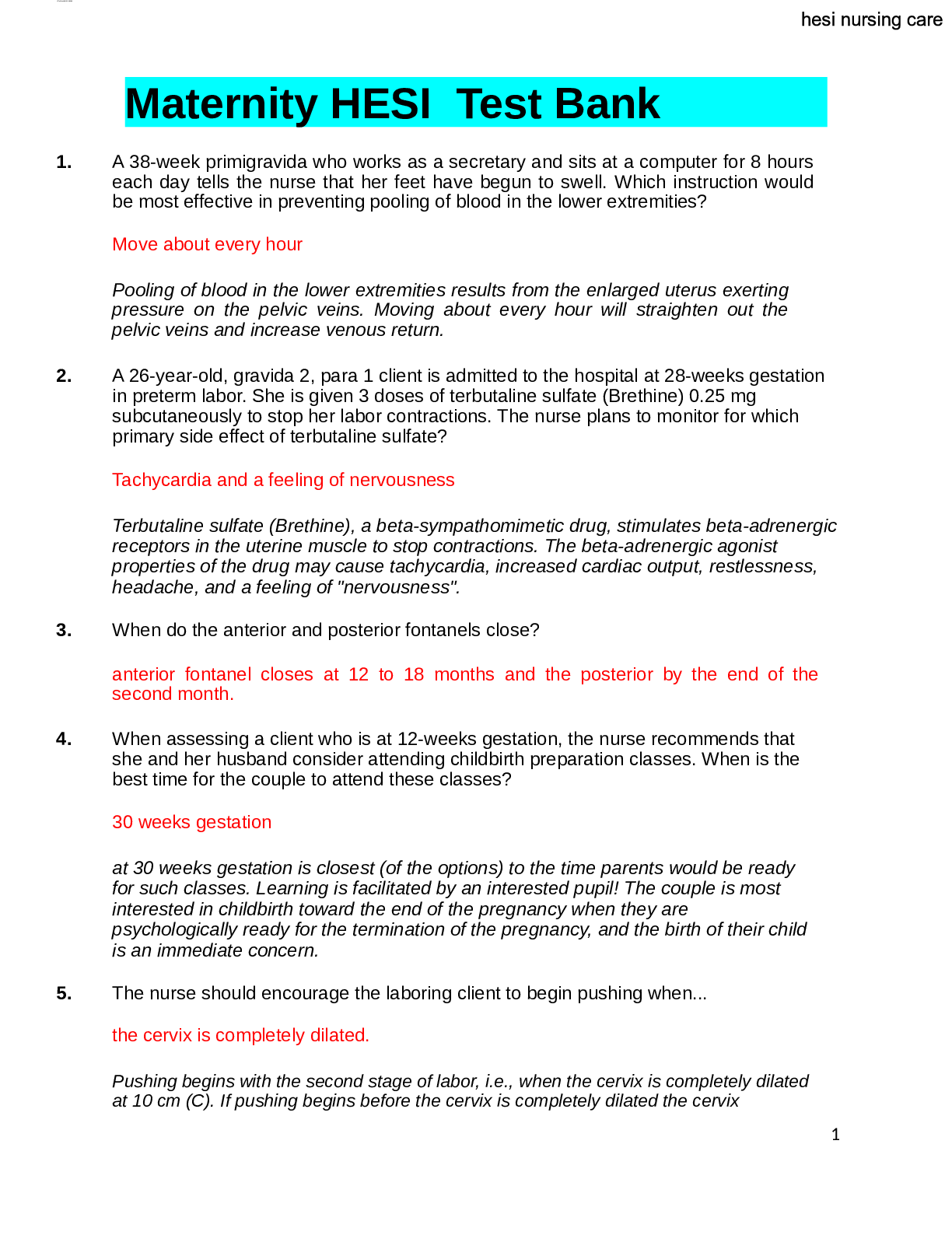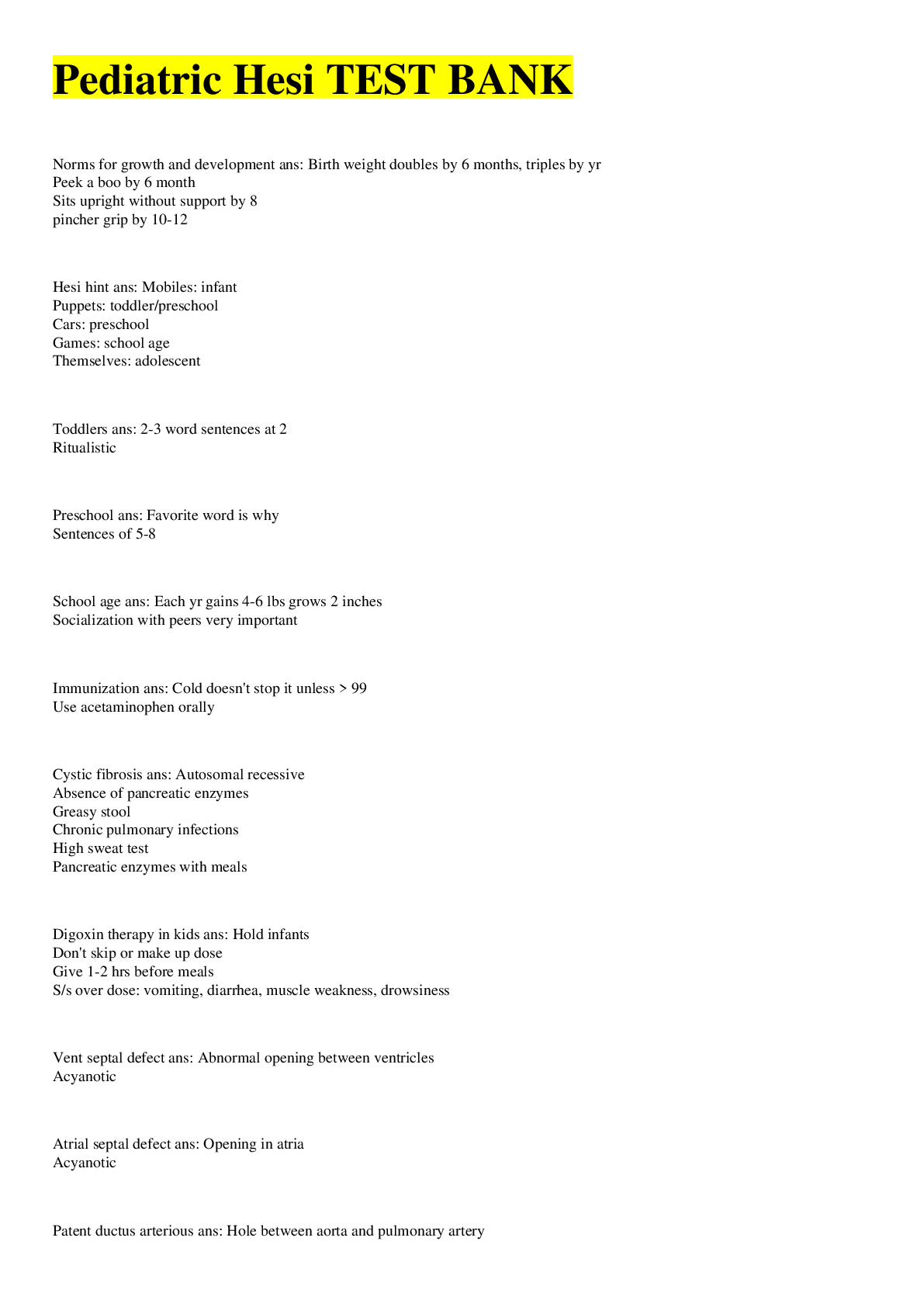*NURSING > TEST BANK > Mental Health HESI Test Bank 2023/2024 A+ Actual Exam Questions With Answers (All)
Mental Health HESI Test Bank 2023/2024 A+ Actual Exam Questions With Answers
Document Content and Description Below
Mental Health HESI Test Bank 2023/2024 A+ Actual Exam Questions With Answers-Which characteristic is commonly associated with adolescent depression? (Select all that apply.) A. Exercising daily B. H... aving suicidal ideation C. Exhibiting tearfulness D. Having poor muscle tone E. Avoiding previously enjoyed activities and relationships - B. Having suicidal ideation C. Exhibiting tearfulness E. Avoiding previously enjoyed activities and relationships Which characteristic of adolescence is exemplified by risk-taking behavior without fear of consequences? A. Animism B. Personal fable C. Imaginery audience D. Sense of invulnerability - D. Sense of invulnerability A client does not take their medication regularly and is depressed. Which inference can the nurse make about the client's motivational level? A. Not motivated B. Intrinsically motivated C. Extrinsically motivated with self-determination D. Extrinsically motivated without self-determination - A. Not motivated Which action would the nurse take for a withdrawn client who suddenly screams, bursts into tears, and runs from the room to the far end of the hallway? A. Walk to the end of the hallway where the client is standing B. Accept the action as the impulsive behavior of a sick person C. Ask another client in the dayroom why the client acted in this way D. Document objectively the incident in the client's record immediately - A. Walk to the end of the hallway where the client is standing This lets the client know that the nurse is available. It also demonstrates an acceptance of the client. Which consistent approach would the nurse use for a client diagnosed with an antisocial personality disorder? A. Warm and firm without being punitive B. Indifferent and detached but nonjudgemental C. Confidentiality acquiescent to client demands D. Clearly communicative of personal disapproval - A. Warm and firm without being punitive Which technique would be appropriate for clients who exhibit mild neurocognitive impairment? A. Reality orientation B. Behavioral confrontation C. Reflective communication D. Reminiscence group therapy - A. Reality orientation Which characteristic is most essential for the nurse to have in caring for clients with mental health disorders? A. Empathy B. Sympathy C. Organization D. Authoritarianism - A. Empathy Empathy - understanding and, to some extent, sharing the emotions of another- encourages the expression of feelings. Sympathy, or feeling sorry for someone, may further decrease the client's feelings of self-worth. Which stage is a terminally ill client displaying by gradually moving towards resolution of feelings about impending death according to Kubler-Ross' theory of death and dying? A. Anger stage B. Denial stage C. Bargaining stage D. Acceptance stage - D. Acceptance stage When acceptance is reached. the individual is beginning to withdraw from life; communication is simple, concise, and most often nonverbal. Kubler-Ross' research has shown that at this stage, verbal communication is typically less important, and touch and presence are most important. The client has moved past the anger, denial, and bargaining stages. Which action would the nurse take for a client with an obsessive-compulsive disorder who continually walks up and down the hall, touching every other and becomes upset if interrupted? A. Distract the client, which will help the client forget about touching the chairs. B. Encourage the client to continue touching the chairs as long as the client wants until fatigue sets in C. Remove chairs from the hall, thereby relieving the client of the necessity of touching every other one D. Allow the behavior to continue for a specified time, letting the client help set the time limits to be imposed - D. Allow the behavior to continue for a specified time, letting the client help set the time limits to be imposed Place the five stages of grievingidentified and described by Elisabeth Kubler-Ross in order of progression from first to last. 1. Anger 2. Denial 3. Depression 4. Acceptance 5. Bargaining - 2. Denial 1. Anger 5. Bargaining 3. Depression 4. Acceptance Which assessment finding would the nurse observe in a client with bipolar disorder, manic phase? A. Constant singing B. Ritualistic behavior C. Flat affect D. Apathetic demeanor - A. Constant singing Which reason would be likely for a client's anger and acting out when the nurse interrupts the hand-washing ritual of a client with obsessive-compulsive disorder? A. Has overwhelming feelings of anxiety B. Resents the nurse's authoritarian manner C. Is clashing with the nurse's personality D. Reflects and aggressive characteristic - A. Has overwhelming feelings of anxiety [Show More]
Last updated: 2 months ago
Preview 1 out of 66 pages
Instant download
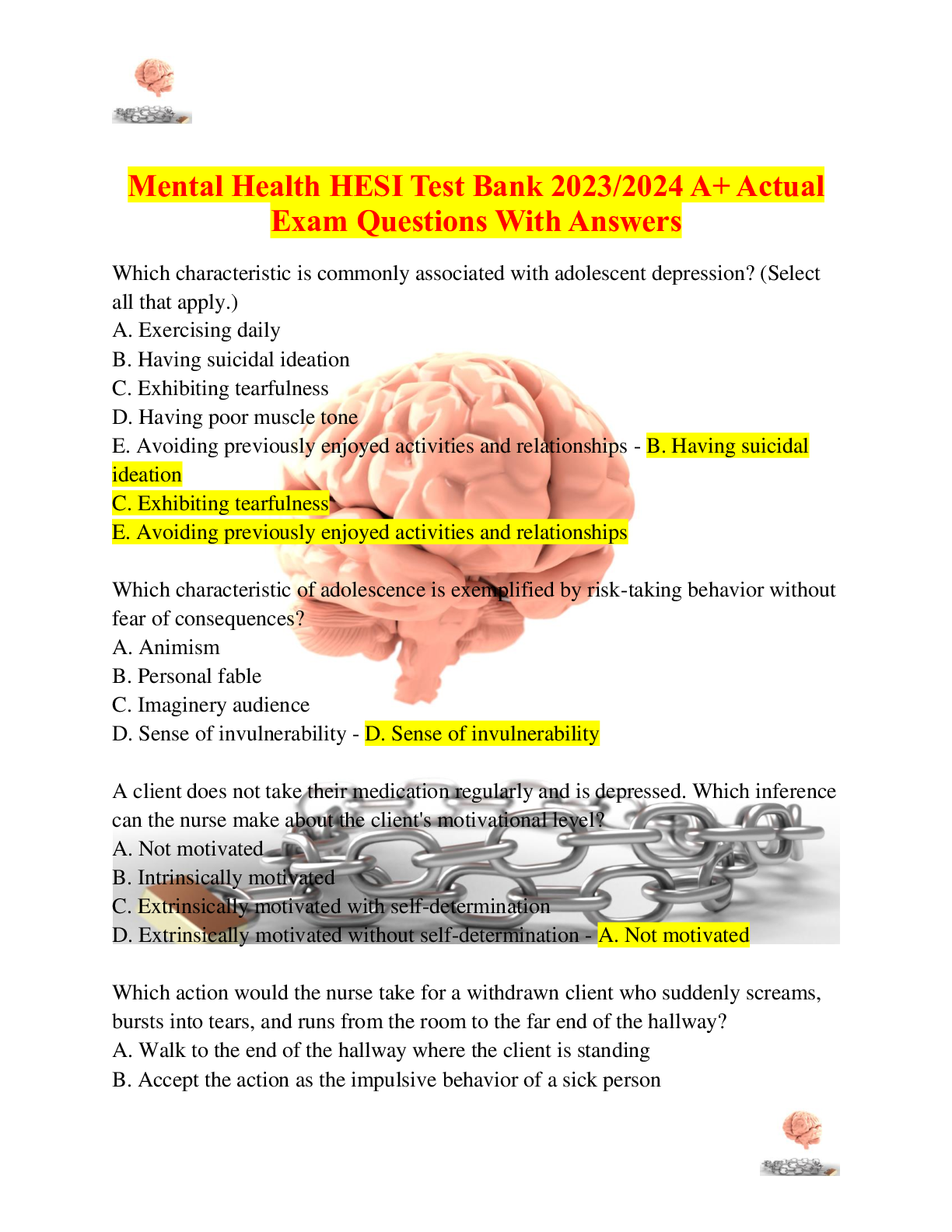
Buy this document to get the full access instantly
Instant Download Access after purchase
Add to cartInstant download
Reviews( 0 )
Document information
Connected school, study & course
About the document
Uploaded On
Apr 07, 2024
Number of pages
66
Written in
Additional information
This document has been written for:
Uploaded
Apr 07, 2024
Downloads
0
Views
20

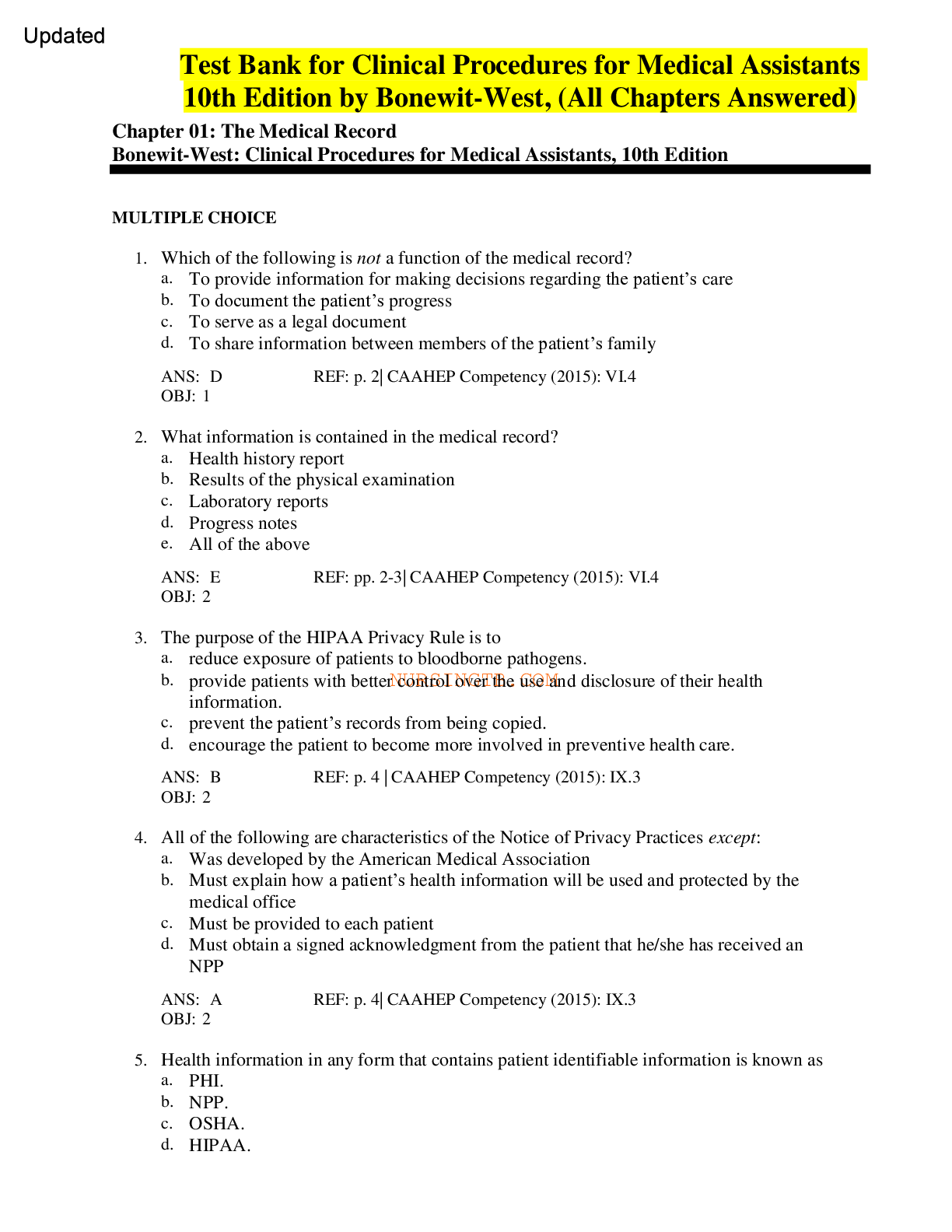
 Including NCLEX Exam Q&As With Rationales.png)
